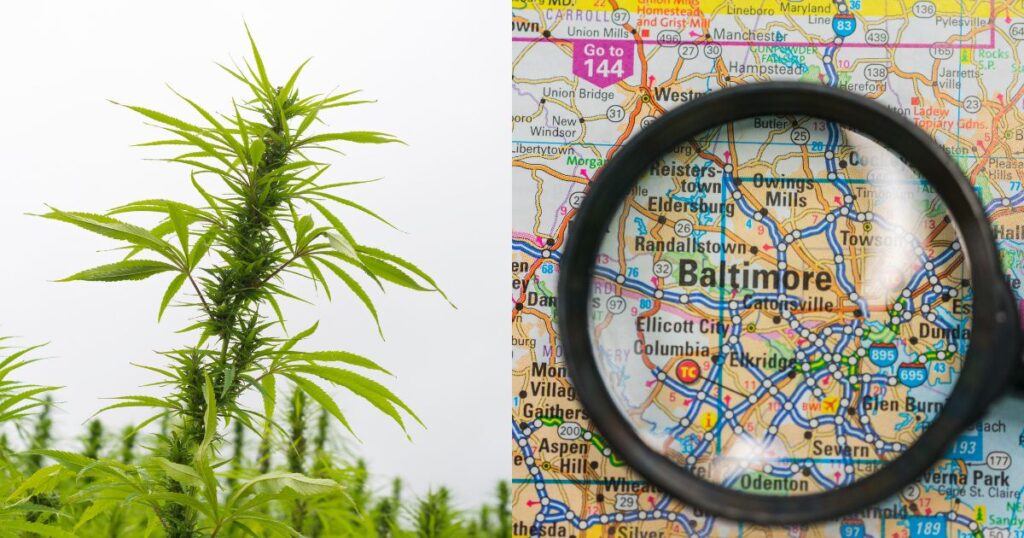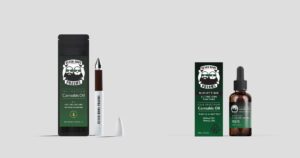The Maryland Appellate Court recently delivered a ruling that will reshape how hemp-derived products are sold throughout the state. Filed September 9th, the court upheld provisions of Maryland’s Cannabis Reform Act, determining that certain hemp products can only be sold through licensed cannabis businesses.
This decision stems from a legal challenge brought by the Maryland Hemp Coalition against Governor Wes Moore and other state officials. The case, formally known as Governor Wes Moore, et al. v. Maryland Hemp Coalition, et al., centered on whether Maryland’s licensing requirements for hemp-derived psychoactive products violated the state constitution.
The ruling which was first reported by Michael McQueeny at Foley & Hoag, could affects thousands of hemp retailers, smoke shops, and consumers across Maryland, while also setting a potential precedent for other states grappling with similar regulatory frameworks.
Hemp Coalition Legal Challenge
The Maryland Hemp Coalition, representing hemp retailers, producers, farmers, and consumers, filed a constitutional challenge against Maryland’s Cannabis Reform Act (CRA) in 2023.
Their primary argument focused on the act’s licensing requirements, which they claimed violated Articles 24 and 41 of the Maryland Declaration of Rights, as well as Article III, Section 40 of the Maryland Constitution.
Under the CRA, businesses cannot sell certain cannabis products, including hemp-derived psychoactive products, without obtaining a cannabis license. The Hemp Coalition argued this created an unconstitutional monopoly and restricted their ability to conduct lawful business.
Initially, the circuit court partially sided with the Hemp Coalition, issuing a preliminary injunction that prevented the state from enforcing certain provisions against businesses already selling hemp-derived products before July 1, 2023. However, the court allowed the state to continue issuing new cannabis licenses during the legal proceedings.
Appellate Court’s Decision
The Maryland Appellate Court reversed the circuit court’s preliminary injunction, ruling in favor of the state on several key points. The court’s decision addressed three main areas of contention.
Federal Preemption Claims
The Hemp Coalition argued that the 2018 federal Farm Bill preempted Maryland’s restrictions on hemp-derived products. The appellate court disagreed, finding that Maryland had submitted a Farm Bill plan in 2020 and noting that the federal legislation primarily addresses hemp cultivation, not end products sold to consumers.
Constitutional Monopoly Arguments
The court rejected claims that the CRA created an unconstitutional monopoly. The Hemp Coalition failed to articulate the relevant market for antitrust purposes, according to the ruling.
Additionally, the court determined that the ability to sell cannabis and hemp-derived psychoactive products has not been a matter of common right that would trigger enhanced constitutional protections.
Public Interest and Regulation
The court found that regulating the cannabis market, including what the state terms “Intoxicating Hemp Products,” serves the public interest. The court applied rational basis review to the Cannabis Reform Act’s provisions, concluding they were rationally related to legitimate government objectives.
The ruling specifically affects “Intoxicating Hemp Products,” which Maryland defines as products containing more than 0.5 mg of THC per serving or 2.5 mg of THC per package. These products can now only be sold through businesses that hold proper legal marijuana licenses in Maryland.
The court also addressed the state’s social equity program within the Cannabis Reform Act. The Hemp Coalition had challenged the use of zip codes to define “disproportionately impacted areas” for social equity applicants, arguing this approach was irrational.
The court disagreed, finding the designation rationally related to legitimate state interests, including redressing harms from past drug enforcement policies.
Impact on Maryland Hemp Businesses
This ruling creates immediate changes for hemp retailers across Maryland. Hemp-only stores, smoke shops, and other businesses without cannabis licenses can no longer sell products that exceed the state’s THC thresholds.
Businesses that were grandfathered in under the circuit court’s preliminary injunction must now either obtain proper cannabis licensing or cease selling affected products. The state can enforce the Cannabis Reform Act’s licensing requirements against all businesses selling hemp-derived psychoactive products, regardless of when they began operations.
For licensed cannabis businesses, the ruling removes uncertainty about their competitive position and confirms their exclusive right to sell higher-THC hemp products alongside traditional cannabis offerings.
Maryland consumers will find fewer retail locations selling certain hemp-derived products. Products containing more than 0.5 mg of THC per serving or 2.5 mg per package will only be available at licensed dispensaries.
This change may affect product availability and pricing, as the licensed cannabis retail network is smaller than the hemp retail market that previously existed.
Legal Precedent and Analysis
The Maryland Appellate Court’s decision reinforces states’ authority to regulate hemp-derived products within their borders, even when those products may be legal under federal hemp legislation. The court’s analysis suggests that state cannabis regulatory frameworks can supersede federal hemp policies when it comes to retail sales.
The ruling also highlights how courts may apply rational basis review to cannabis and hemp regulations, generally siding to legislative judgments about public health and safety. This standard makes it difficult for challengers to successfully argue that such regulations are unconstitutional.
The decision highlights the ongoing tension between federal hemp legalization and state cannabis regulatory schemes. As more states develop cannabis markets, similar conflicts between hemp and cannabis regulations are likely to emerge.
What Happens Next?
The Maryland Hemp Coalition could potentially appeal this decision to the Maryland Supreme Court, though no announcement has been made regarding future legal action. For now, the appellate court’s ruling stands as the final word on these regulatory questions.
The state will proceed with the Cannabis Reform Act’s licensing requirements across all hemp retailers selling psychoactive products. Businesses have limited time to either obtain proper licensing or modify their product offerings to comply with the new restrictions.
Maryland’s Cannabis Administration will continue issuing new licenses under the established framework, including through the social equity program that the court upheld.
















